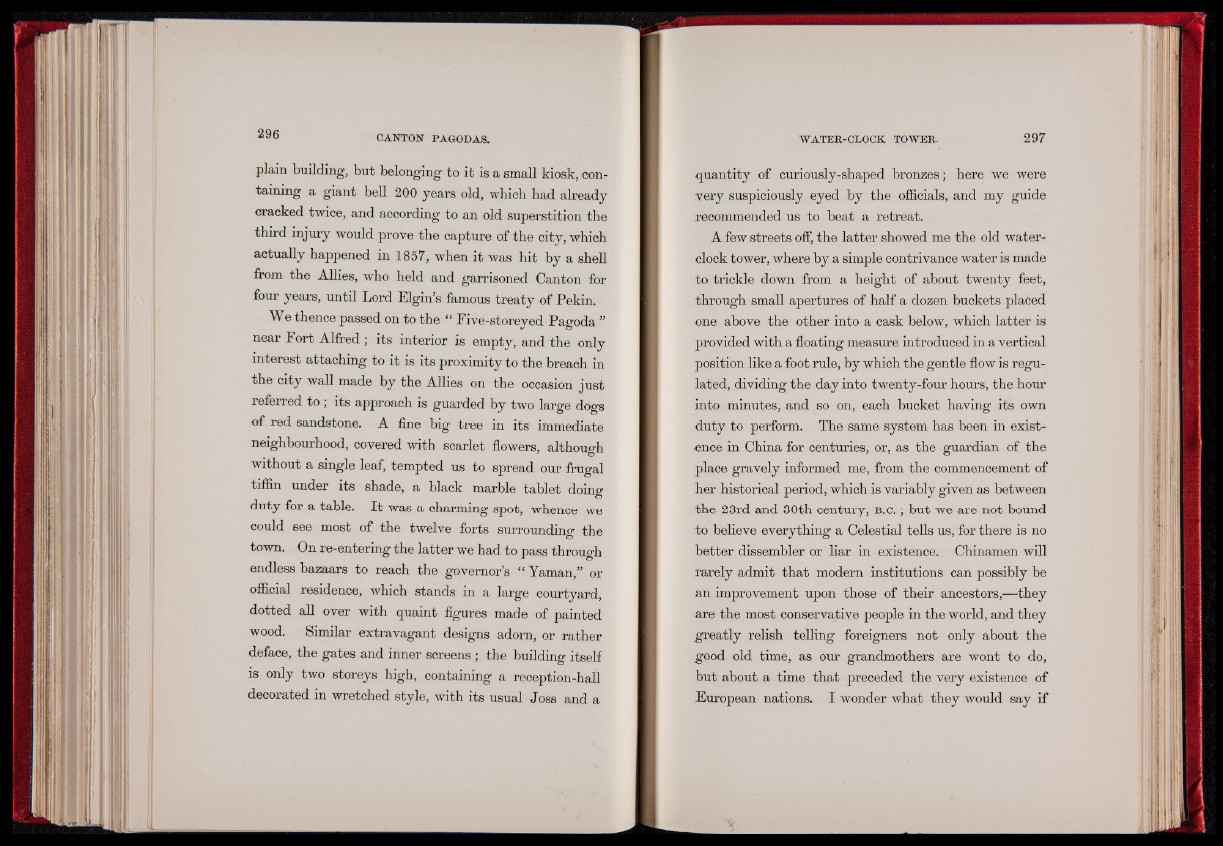
plain building, but belonging to it is a small kiosk, containing
a giant bell 200 years old, which had already
cracked twice, and according to an old superstition the
third injury would prove the capture of the city, which
actually happened in 1857, when it was hit by a shell
from the Allies, who held and garrisoned Canton for
four years, until Lord Elgin’s famous treaty of Pekin.
We thence passed on to the “ Five-storeyed Pagoda ”
near Fort Alfred ; its interior is empty, and the only
interest attaching to it is its proximity to the breach in
the city wall made by the Allies on the occasion just
referred to ; its approach is guarded by two large dogs
of red sandstone. A fine big tree in its immediate
neighbourhood, covered with scarlet flowers, although
without a single leaf, tempted us to spread our frugal
tiffin under its shade, a black marble tablet doinooduty
for a table. I t was a charming spot, whence we
could see most of the twelve forts surroundingO- the
town. On re-entering the latter we had to pass through
endless bazaars to reach the governor’s “ Yaman,” or
official residence, which stands in a large courtyard,
dotted all over with quaint figures made of painted
wood. Similar extravagant designs adorn, or rather
deface, the gates and inner screens ; the building itself
is only two storeys high, containing a reception-hall
decorated in wretched style, with its usual Joss and a
quantity of curiously-shaped bronzes; here we were
very suspiciously eyed by the officials, and my guide
recommended us to beat a retreat.
A few streets off, the latter showed me the old water-
clock tower, where by a simple contrivance water is made
to trickle down from a height of about twenty feet,
through small apertures of half a dozen buckets placed
one above the other into a cask below, which latter is
provided with a floating measure introduced in a vertical
position like a foot rule, by which the gentle flow is regulated,
dividing the day into twenty-four hours, the hour
into minutes, and so on, each bucket having its own
duty to perform. The same system has been in existence
in China for centuries, or, as the guardian of the
place gravely informed me, from the commencement of
her historical period, which is variably given as between
the 23rd and 30th century, B .C .; but we are not bound
to believe everything a Celestial tells us, for there is no
better dissembler or liar in existence. Chinamen will
rarely admit that modern institutions can possibly be
an improvement upon those of their ancestors,—they
are the most conservative people in the world, and they
greatly relish telling foreigners not only about the
good old time, as our grandmothers are wont to do,
but about a time that preceded the very existence of
European nations. I wonder what they would say if